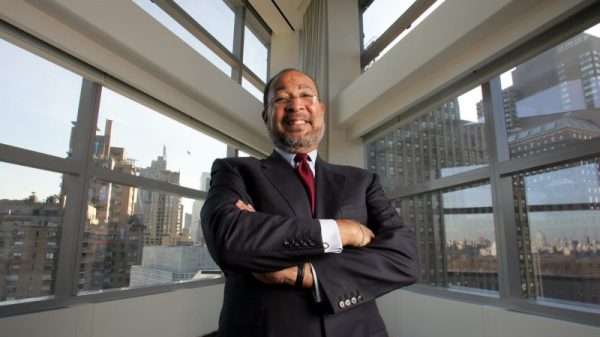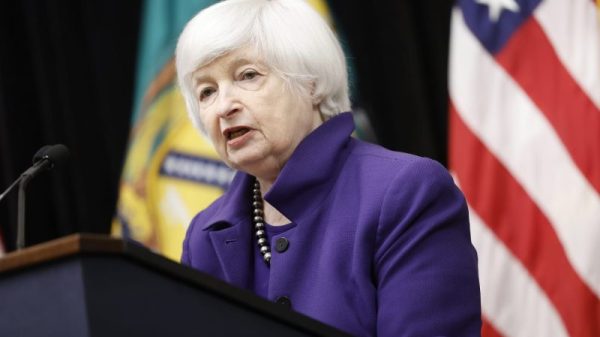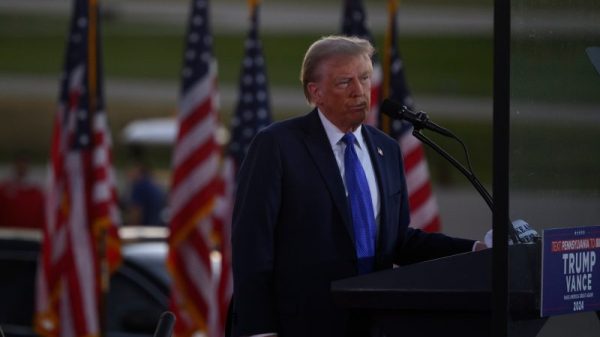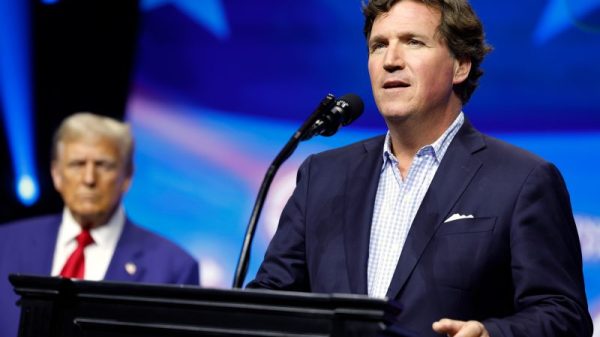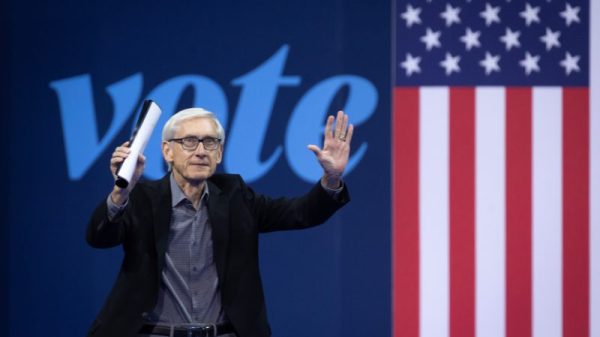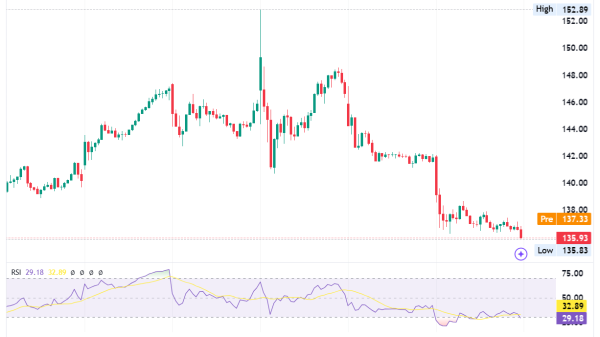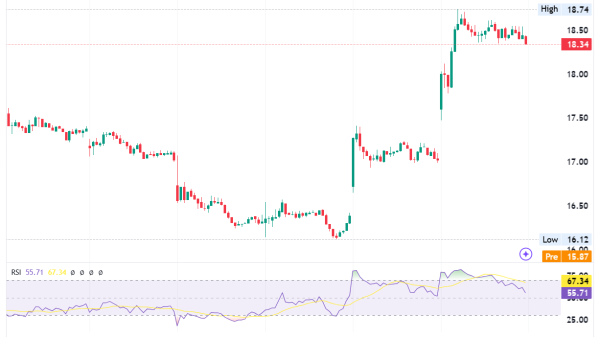For months, Robert F. Kennedy Jr. and Donald Trump offered each other little more than disparagement. Kennedy attacked Trump for having “betrayed the hopes of his most sincere followers” and, in private text messages, described him as the “wors[t] president ever and barely human.” Trump, for his part, derided Kennedy as a “Liberal Lunatic” in various ways at various times.
Yet there they were Friday evening in Arizona, sharing a stage as Kennedy — nephew of Democratic president John F. Kennedy — offered Trump his support (and, Trump hopes, the support of Kennedy voters). Because, at the end of the day, Trump and Kennedy are aligned on the most fundamental aspect of their politics: that what you believe is more important than what is. That they are right and that the people saying they’re wrong are wrong.
A few hours before Kennedy and Trump appeared at that joint event, Kennedy held a separate event announcing the endorsement. He delineated three central motivations: government censorship, the war in Ukraine and Trump’s interest in making “chronic disease” (purportedly caused by unhealthy food) his political legacy.
It’s an odd lineup, given who we’re talking about here. On Ukraine, Kennedy is taking at face value Trump’s assertion that he can quickly resolve the conflict. And on disease, he’s trusting the McDonald’s-loving Trump to prioritize healthy eating.
Each point also overlaps with inaccurate beliefs Kennedy holds. The “censorship” Kennedy laments was not government censorship (he is mad that a Biden administration official asked, unsuccessfully, for the removal of a social media post containing vaccine misinformation) and was part of a process that began during Trump’s presidency. His Ukraine arguments were credulous rehashings of claims made by apologists for Russia’s invasion. His past claims about the dangers of food have included an argument that additives are causing “gender confusion.”
This reflects the through-line between him and Trump: that there is no expertise or authority that should be given deference over what you want or believe to be true. That scientists and military experts and researchers have opinions that can sit alongside your own. Or, in many cases, have opinions that are inferior to your own, since they are part of informational systems that are inherently untrustworthy by virtue of including those experts.
It’s an epistemological framework that isn’t exclusive to Trump and Kennedy, obviously. It was once assumed that the internet, by allowing global, instant access to information, would lead to broader awareness of issues and a collective understanding. But we’ve seen, instead, that the internet (and social media in particular) instead lead to misleading or overtly false belief systems, cobbled together from bits of cherry-picked information. Self-reinforcing and self-policing communities have emerged. There is an entire economy, powered in part by overtly bad actors, centered on meeting demand.
Perhaps no community has proved as large and robust as the one constructed and bolstered by Donald Trump, the one into which Kennedy is folding his political ambitions. It’s not that Trump and his allies are never correct and the authorities and experts (including the media) are never wrong. It’s that experts and researchers are oriented around objective reality and at times make errors. Trump and the do-your-own-researchers are oriented around their subjective beliefs, which doesn’t preclude being right. But challenging assumptions rather than seeking to reinforce them has, over the centuries, proved to be a more effective means of arriving at the truth.
Trump and his allies have no qualms about Kennedy’s capitulation because it aligns with the organizing theme of their politics: Trump. Arizona Senate candidate Kari Lake — among the loudest voices claiming that rampant voter fraud exists, which it doesn’t — said Sunday that the endorsement “shows you how welcoming our movement is.” Once he sided with Trump, nothing else mattered.
Kennedy has said that he tried to reach out to Trump’s opponent, Vice President Kamala Harris, potentially offering her his endorsement in exchange for a position of authority in her possible administration. The Harris camp didn’t reply. It seems fair to assume that Kennedy’s track record of misinformation and the harm it can cause offered too much potential to undermine Harris’s campaign message.
It doesn’t harm Trump’s at all.
His 2016 candidacy emerged as the Republican establishment (leaders and elected officials responsible for steering the party and its politics) was facing a revolt triggered by populist voices and outlets in the right-wing media. Trump’s victory was a function of his embracing and empowering that rhetoric, something elected Republicans were wary of doing since it was often false or misleading. In part because he spent decades as the unquestioned, all-powerful leader of his own business — no doubt reinforcing his confidence in his own judgment — and in part because he understood the political utility of doing so, Trump leaned into false claims about immigrants and crime and the various other things that now define his politics. (“Healthy eating” was not among them.)
One response to the 2016 election was an effort to try to backstop reality against false claims and misinformation. Social media companies developed tools meant to address or label falsehoods. By 2020, though, those claims metastasized, with untrue assertions about the coronavirus pandemic or crime or elections running rampant in the national dialogue. Resisting efforts to stamp out misinformation became part of the political right’s rhetoric, in part because Trump was increasingly a target of it. In recent years, those tools have been scaled back.
Which sets up the 2024 election. It features Trump, devotee of depicting the world as he sees it rather than how it happens to be. He’s backed by tens of millions of American voters and by a sturdy ecosystem in which his supporters tell each other and themselves that his subjective claims are universally (rather than sporadically) accurate. He’s running against Harris, who almost definitionally therefore represents the objectivity-aligned position. (She is, of course, also a politician, and therefore hardly immune from exaggeration or misrepresentation.)
Within that framework, though, Kennedy’s decision makes sense. Subjective over objective. Reassuring fiction over inconvenient fact. A contest in which the winner gets to run the United States for a few years.






